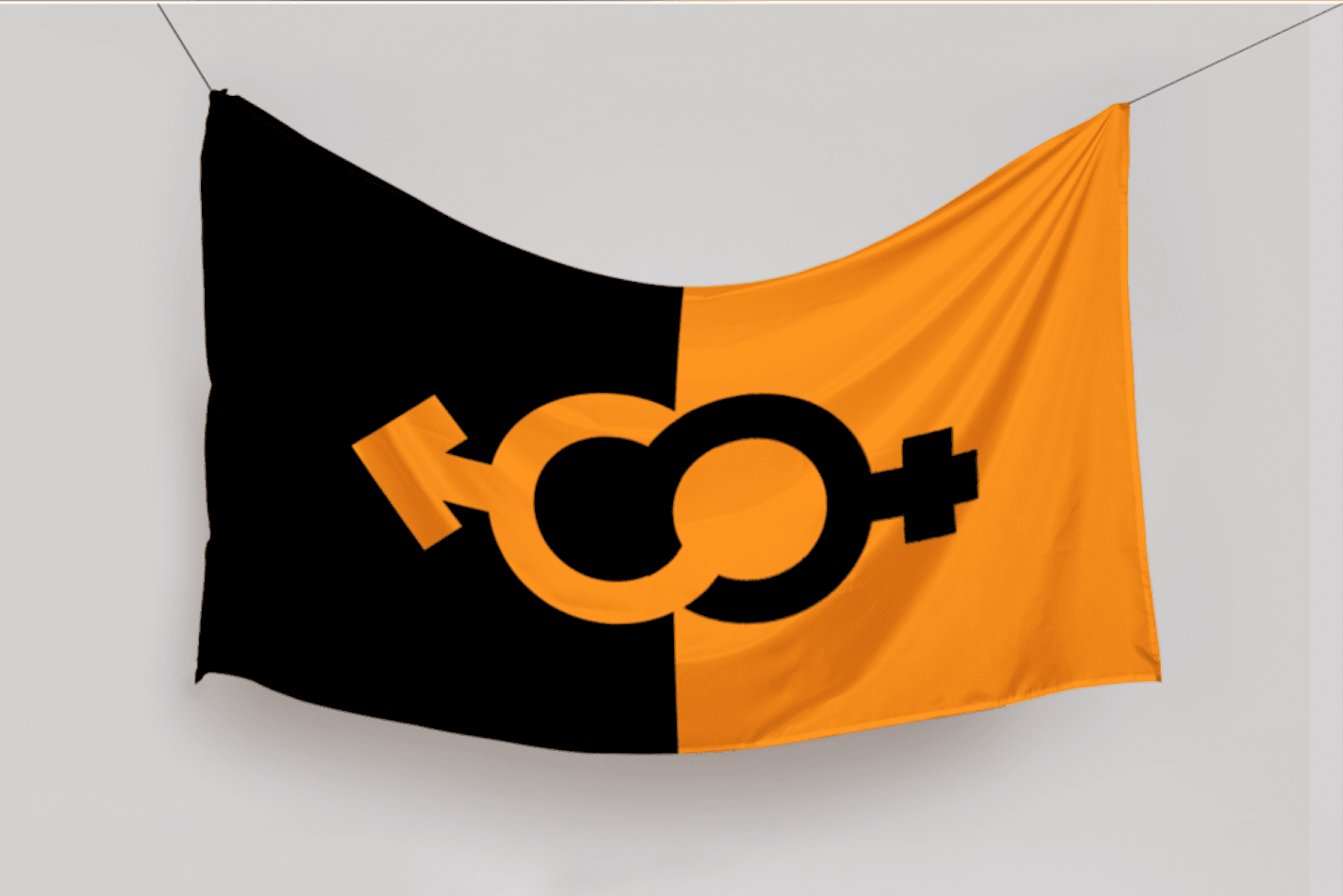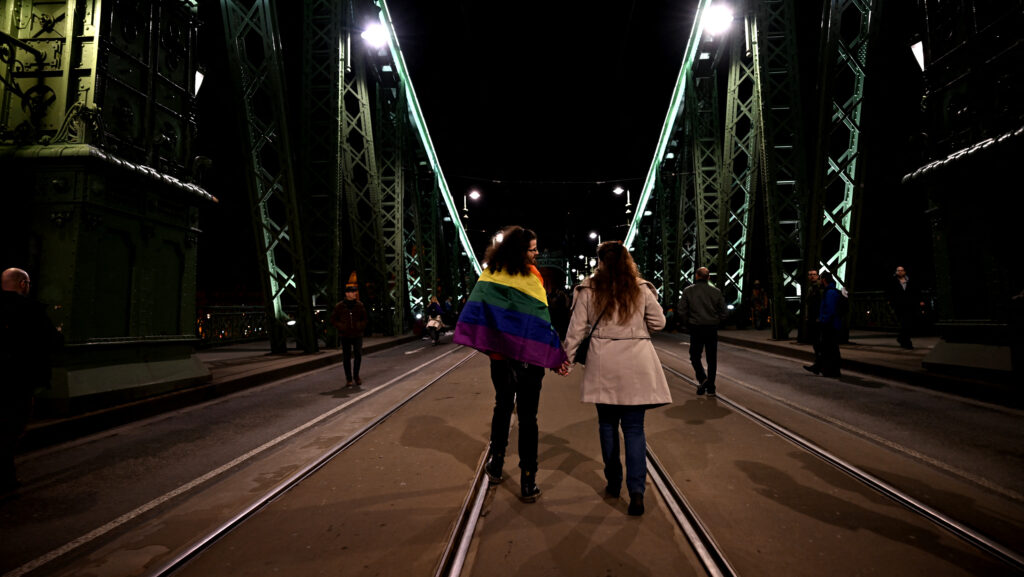Twitter just seemingly exploded over a movement advocating for a newfound sexuality, which aims to counter leftist identity politics with its own tactics. The new sexuality in question is none other than the so-called “super straight” and, according to those it supposedly refers to, it deserves its own place inside the LGBTQ-spectrum, a notion which drives the “traditional” gender activists absolutely mad in the comment sections. It seems that we now are witnessing the birth of one of the most successful political memes in recent years.
Movements of identity politics based on? Different sexualities and genders have grown to a fearsome popularity during the last decade, and in some cases even took hold among the social dogmas of mainstream leftism – not only in everyday political discourse, but in academic circles, arts and every other public sphere as well. The same movement, which fought for the equal rights and social acceptance of homosexuals just a few decades ago, now distinguishes a dozen or so different sexualities and invented close to a hundred new genders, each more irrational than the other.
Among these, the most problematic – even debated among the LGBTQ-community – is the situation of transgender individuals
as the phenomenon of changing people’s biological sex not only invokes countless societal questions, but also has legal and public health implications which make it hard for lawmakers to keep up. Many people on both sides of the political aisle have extensively written about the different debates regarding the transgender question (like labelling the use of incorrect pronouns ‘hate-crimes’, enabling children to go on hormone therapies, transwomen dominating female athletic sports or their ongoing feud with traditional feminists), so I would resort to focusing only on one alarming issue, which indirectly led to the rise of the super straight meme.
There is the complicated and quite delicate question – discussed more and more frequently on the internet – about the ethics of rejecting someone romantically based on them being trans. As the progressive argument goes, trans individuals are just as much valid in their femininity or masculinity as their biological female or male counterparts –regardless of their genitals, of course– therefore cisgender people should not have any excuses for rejecting their advances because it’s not gender, but sexuality that matters. In simpler terms, the radical left believes that if a heterosexual man doesn’t want to get involved with a woman who was still a man just a year before, then that’s a discriminatory preference in dating, a sign of sheer transphobia and the rejection itself could be considered no less than a hate-crime. The same logic applies, of course, to straight women and transmen, as well as homosexuals and gay or lesbian transgenders. To make it clear, if a lesbian woman wouldn’t date a stubbly ‘woman’ with a receding hairline and broad shoulders, then she’s committing a hate-crime and it could turn her own community against her.
So, this new ‘sexual identity came into existence to counter the frequent online accusations of transphobia, and, by most users, it is being used jokingly to hold up a black mirror to the increasingly irrational gender ideologues, but for some it is also a legitimate measure which helps them defend their sexual identities and freedom of opinion. The term super straight is defined as a heterosexual individual, who is only attracted to members of the opposite sex who identify with their gender assigned at birth. The key term here is ‘attraction’, because if this mindset is not merely a dating preference, but rather a legit sexuality, then it deserves the same kind of protection as any other sexual minority on the LGBTQ-spectrum, and thus no one should be able to accuse such people with transphobia. Because – as the old argument goes – they were born like this and we all should accept that.
The meme, by the way, was invented by a TikTok user, as more of a joke than a serious approach to an actual problem, but nonetheless, it quickly took on as seemingly real online movement. In less than two weeks, the trend gained widespread popularity on alternative social media sites like Reddit and 4Chan, the users of which started a full-blown ‘visibility’ campaign on Twitter not long after, making their way into the mainstream political discourse. The original TikTok video has been deleted since due to a number of death threats issued towards its creator and his family, but the movement he created is likely to leave its mark on the public discourse around transgenderism for years to come.
The new sexuality has become even more relevant, as besides the people coming out as super straight in order to confront the gender activists with their own ridiculous dogmas, some individuals claiming to be super gay, super lesbian, or even super bisexual have also appeared on the scene, basically saying the same thing, namely that the rejection of transgenders romantically is a matter of sexuality, rather than being a preference. In their case, this move offers a solution to the growing infighting of the LGBTQ-communities, since these individuals—openly identifying as super something—can now avoid being constantly judged by their peers because of their alleged transphobia, something that homosexuals have to face significantly more times than heterosexuals, by the way. For them, therefore, the super meme can easily become an actual tool of preserving their identity as members of a sexual minority.
From a conservative point of view, the trend offers a great opportunity to show the militant Left the twisted and contradictory nature of their new societal paradigm.
Similarly to other civil rights campaigns, the movements fighting for the freedom of sexuality were created by the actual need to dissolve social stigmas and eliminate discriminatory practices from everyday public life. In the 21st century, however, these goals have long been realized in most countries of the Western world, so those who still ached to fight had to think further. They replaced the initial goal of equality with a utopia of complicated and unnatural hierarchies intertwined with each other, in which a person’s value is determined by exterior factors—such as race, gender, sexuality and status—which tell you how far you stand on the great social ladder of oppression. Bizarre as it seems, but we have arrived to a point where even the mainstream media, academia and liberal policy makers are aiding the progressives in achieving this ultimate dream of equity, and since this radical progressivism outgrew its place on the outskirts of public discourse, the right has been finding itself unable to properly address it. The representatives of traditional conservative thinking could not leave a strong enough mark on the course of this debate, as every argument they’ve come up with so far – regardless how rationally and precisely they might have crafted them – were almost instantly dismissed as outdated caws of racism, sexism, homophobia or transphobia for that matter.
And now the people of the internet, becoming disillusioned with this highly dysfunctional debate and constantly being forced to defend their opinions, have turned their own logic against the left when deciding to follow their recipe to the letter. The users coming out as super straights, gays and lesbians en masse these past days have already established their own symbols, reflecting those of the other movements of identity politics. They chose the vertically divided black and orange flag to represent them, which can be further decorated with the corresponding symbols of each sexuality. Apart from the necessary imagery, dozens of official-looking social media sites testify to the validity of the movement, and the earliest subreddits quickly gained thousands of members in a matter of hours. And if any of this bothers anyone, then they are superphobes of course, their opinions are irrelevant and offensive. It is 2021 after all, such bigotry has no place here anymore.
The whole story is astoundingly ridiculous, as it should be, in order to work properly. The movement took the most common tropes of progressive identity politics, and applied them to heterosexuality to show them how senseless they really are. The results speak for themselves, as many confused trans-advocates were forced to change their positions. The very people who not long ago were the most vocal judges of other people’s dating preferences, are now ready to leave the whole issue in the bedroom, just not make a sexual ‘minority’ out of literal straightness.
Well, this is what a successful political meme-campaign looks like. Nothing sophisticated, but effective nonetheless, striking right at the core of the issue. Simply super.








